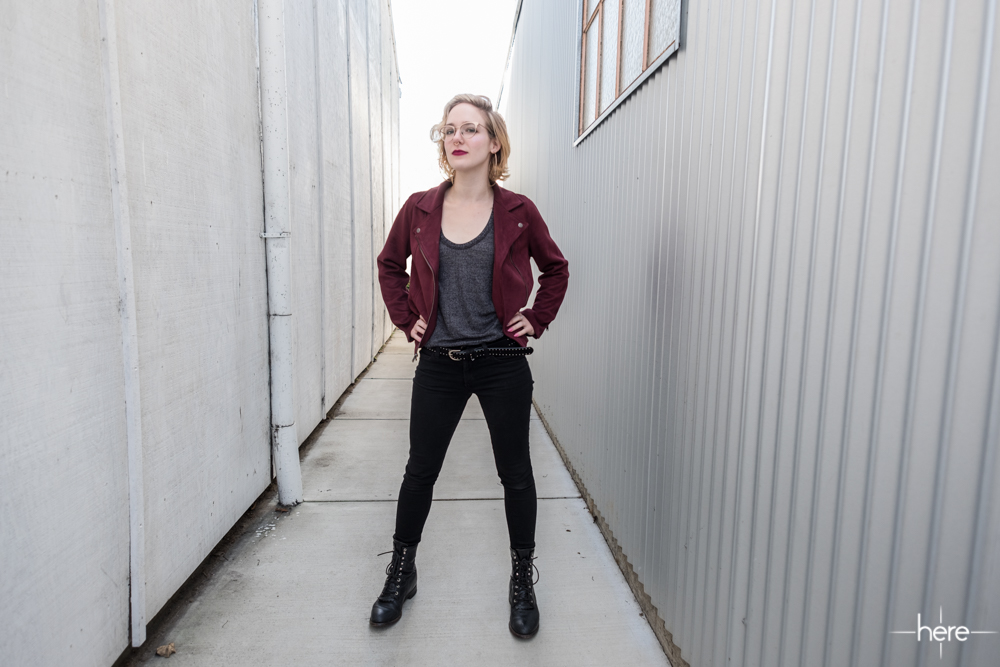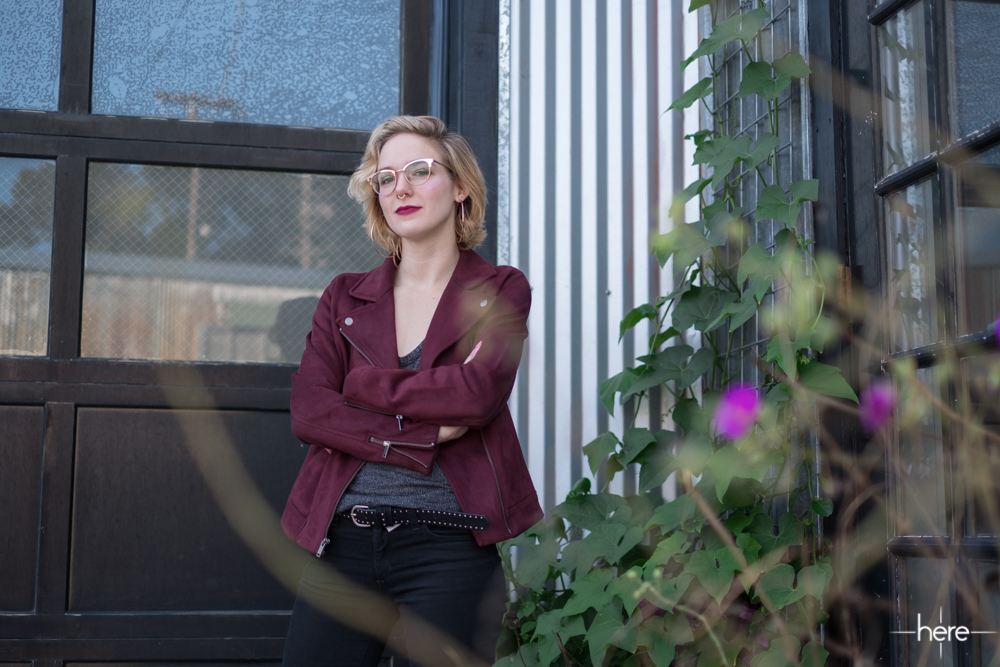I was a girly tomboy theater kid all through my childhood and teenage years, which in many ways foreshadowed my identity now. I loved the aesthetics of stereotypical femininity- heels, lipstick, pink, glitter- but felt resentful at best towards many aspects of womanhood.
I came out as a queer cis woman in my early 20s and felt like I had to play catch up on the culture. I buzzed my long hair, bought a short sleeve button down, and tried to emulate the too-cool androgyny of the women I had crushes on. It never felt quite right, but I thought it was better than being mistaken for straight all the time.
Funnily enough, coming out as non-binary brought me back towards femininity in a way I didn’t expect. A group of cis women lectured me right after I came out on how I was reinforcing gender roles by identifying as genderqueer. They told me that not looking or acting stereotypically feminine didn’t mean I wasn’t a woman. I started to think more and more about the reverse: looking or acting in ways associated with traditional femininity didn’t have to mean I was a woman either.
Shifting to they/ them pronouns gave me a way to signal my queer identity beyond my appearance and reduced the pressure I felt to look a certain way. I have settled into a performative hard femme presentation that makes me feel joyful and powerful and visible. My sense of femme is further defined by a commitment to radical softness, empathy, and vulnerability. None of these things are exclusive to femmes, but they are parts of myself that I was socialized to believe were negatively feminine, and that I wanted to reclaim as valuable.
I appreciate my passing privilege while also resenting the fact that it is rare for someone to look at me and not automatically think “woman.” I want to continue to reinforce the idea that people in between the ends of the gender spectrum can look and act all sorts of ways and still be non-binary.

They-them, glitter femme
Gender Id/Pronouns : Genderqueer, they-them
Age : 25
Location : Oakland
Their Instagram

